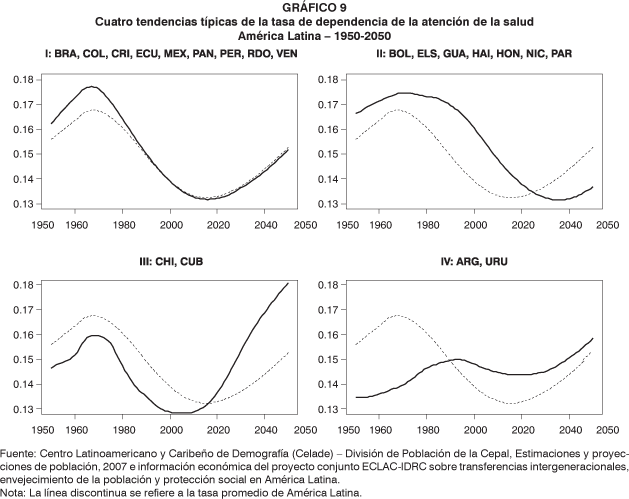Latin America is undergoing a demographic transition that is transforming the age distribution of its population. Since economic behavior varies over one's life course, changes in age structures can generate significant impacts on processes of economic development. Using data on consumption patterns and income by age from the Cepal/IDRC Project on Intergenerational Transfers, this article examines the economic effect of demographic change, especially of demographic dividend, on three sectors directly related to the population's well-being and regional economic development: education, health and the retirement system. The analyses show that resources for education are likely to increase over the next decade, and this will probably sustain the current efforts at expanding the educational system at the various levels of schooling. In the area of health care, an increase in available resources per consumer can be expected in some countries, but, in countries where the demographic transition is farther advanced, a demographic change hinders expansion of health systems in the coming decades. Similarly, retirement systems will probably suffer strong negative impacts from changes in the demographic structure, since the effects of the aging of the population in these systems are evident in almost all the countries in the region.
Demographic bonus; Aging; Social sectors












